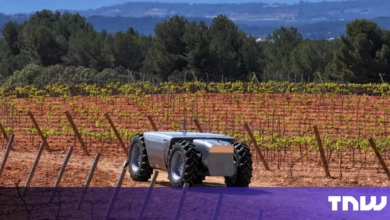Arc Spacecraft: Deliver Cargo Anywhere in 1 Hour

▼ Summary
– Inversion unveiled its new “Arc” spacecraft designed for rapid global delivery of up to 500 pounds of supplies for the US military.
– The Arc spacecraft can remain in orbit for up to five years and be called upon to autonomously land anywhere within an hour when needed.
– Inversion was founded in 2021 by Boston University students Justin Fiaschetti and Austin Briggs, with Fiaschetti having propulsion experience from SpaceX and Relativity Space.
– The company’s vision is to use space as a highway for physical cargo delivery rather than just data transmission, recognizing its economic value.
– Inversion successfully launched its “Ray” demonstration spacecraft in January 2024 to test in-house subsystems and perform a deorbit burn and landing.
Imagine a world where critical supplies can travel from a warehouse in orbit to a remote military outpost in less than sixty minutes. This is the ambitious vision behind Inversion, a Los Angeles-based aerospace company that recently unveiled its groundbreaking “Arc” spacecraft. During a high-profile event at its factory, the startup detailed plans for a revolutionary on-demand delivery system designed to serve the U.S. military.
The core concept involves pre-positioning multiple Arc vehicles in orbit, where they can remain on standby for up to five years. When a request comes in, these spacecraft would autonomously de-orbit and deliver their payload, up to 500 pounds (225 kg) of cargo, to virtually any location on Earth in under an hour. This capability promises to transform logistics for time-sensitive missions, providing a rapid-response option that traditional air or ground transport cannot match.
Justin Fiaschetti, Inversion’s co-founder and CEO, explained the strategic advantage. The nominal mission profile calls for having the Arcs stationed in space, ready to be called upon at a moment’s notice. They would then guide themselves to a precise landing, bringing essential cargo or other effects directly to the point of need with unprecedented speed.
The company itself has a relatively short but focused history. Fiaschetti and co-founder Austin Briggs, both former Boston University students, established Inversion in early 2021. Fiaschetti brought valuable experience from internships at SpaceX and Relativity Space, where he specialized in propulsion systems. He ultimately left university to pursue a powerful, straightforward idea that became the foundation of their venture.
Fiaschetti challenges the common perception of space as merely a destination. He argues that the real, untapped economic potential lies in using space as a global transit route. While many companies focus on data transmission from orbit, Inversion recognized an opportunity to move physical objects. This insight led them to develop specialized reentry vehicles capable of transporting cargo across the planet via space.
After just three years and with a lean team of only 25 employees, the company has already demonstrated its technology in orbit. Their first small demonstration spacecraft, named “Ray,” hitched a ride to space aboard a SpaceX Transporter-12 mission this past January. The objective for Ray was to operate in the space environment using Inversion’s proprietary subsystems before executing a controlled deorbit burn with its bipropellant rocket engine and landing off the California coast.
(Source: Ars Technica)

